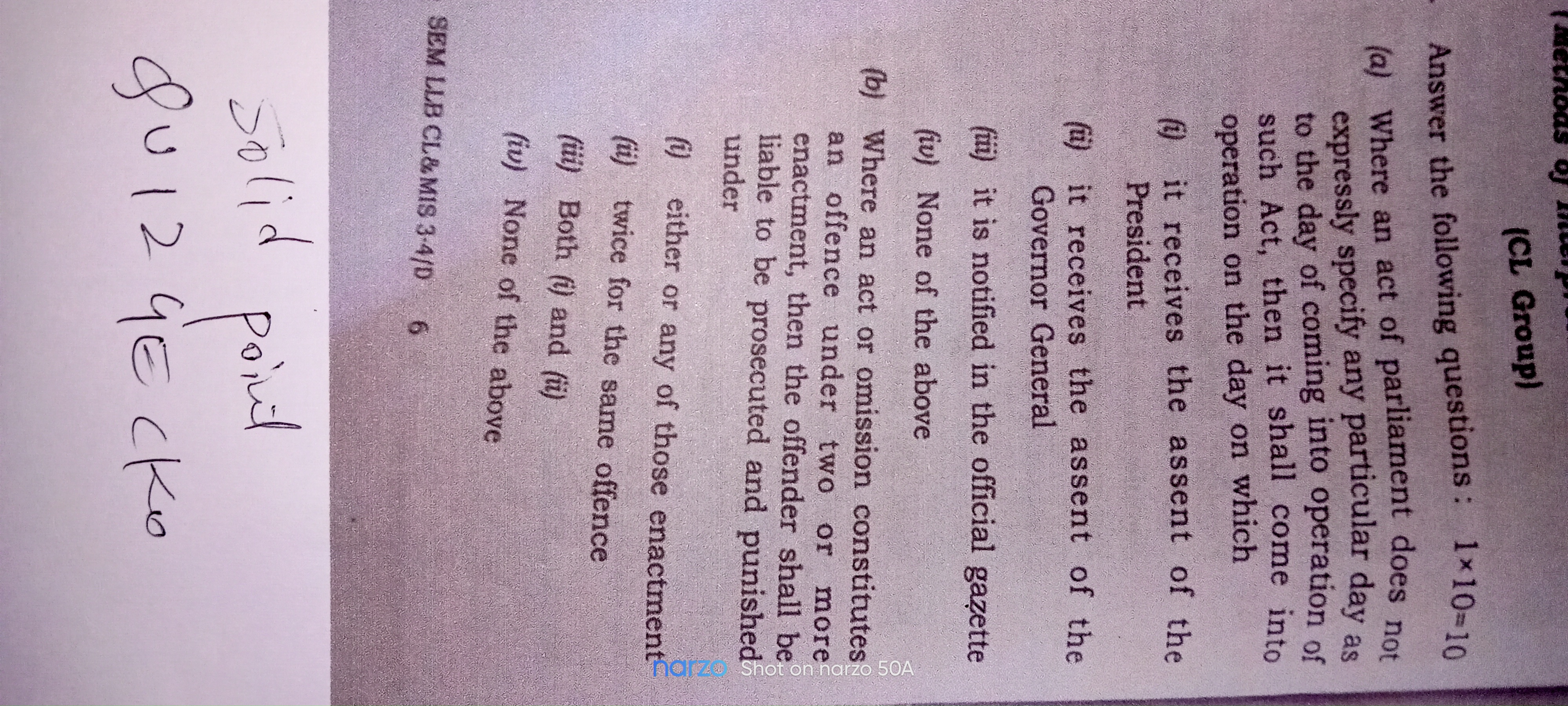Answer the following questions: 1x10=10 Where an act of parliament does not expressly specify any particular day as to the day of coming into operation, then it shall come into ope... Answer the following questions: 1x10=10 Where an act of parliament does not expressly specify any particular day as to the day of coming into operation, then it shall come into operation on the day on which it receives the assent of the President or the Governor General. Where an act or omission constitutes an offence under two or more enactments, then the offender shall be liable to be prosecuted and punished either for the same offence under either or any of those enactments. Which of the following is true? (i) None of the above (ii) Both (i) and (ii)

Understand the Problem
The question appears to relate to the legal provisions regarding the enactment of laws, specifically in regard to when acts of parliament come into operation and the implications for prosecution under multiple legislations. It asks for clarifications or answers based on specified legal conditions.
Answer
None of the above.
The correct answer is: None of the above is explicitly true as both statements have conditions based on the General Clauses Act principles.
Answer for screen readers
The correct answer is: None of the above is explicitly true as both statements have conditions based on the General Clauses Act principles.
More Information
The General Clauses Act, 1897 outlines that if no specific commencement date is provided, the act becomes effective on the day after it receives assent. Additionally, offences under multiple enactments can be prosecuted under any of them, but not for both as stated.
Tips
Misunderstanding the commencement provisions and not cross-referencing multiple enactments could lead to incorrect assumptions.
Sources
- The General Clauses Act, 1897 - Section 5 - indiankanoon.org
AI-generated content may contain errors. Please verify critical information